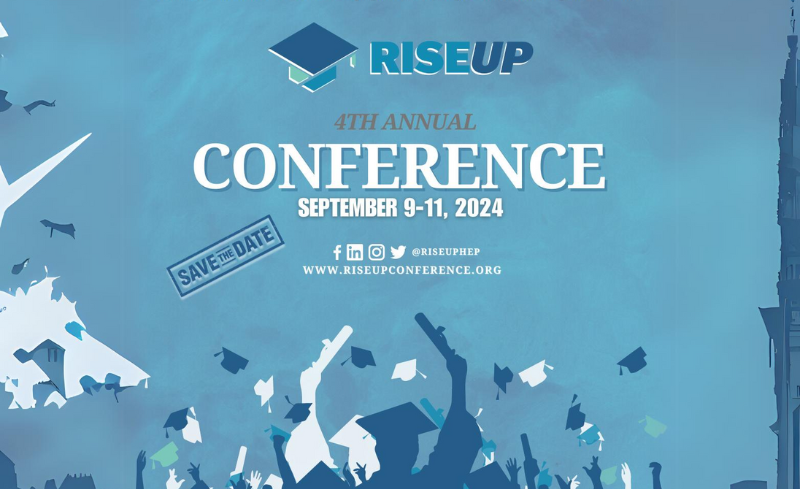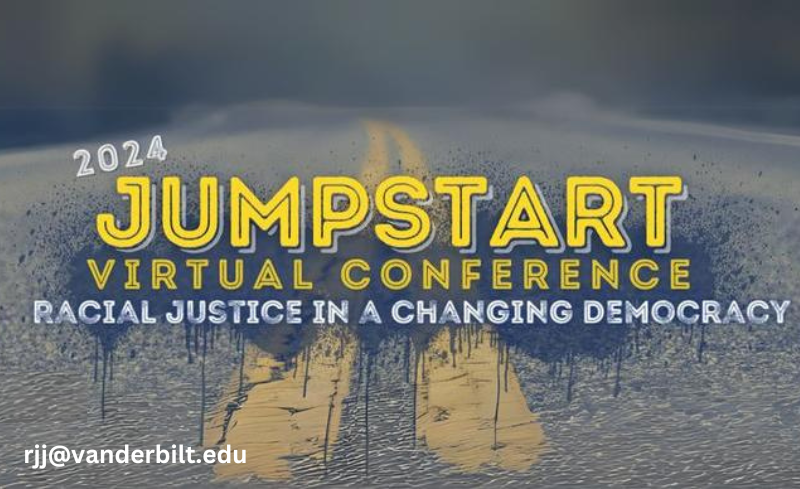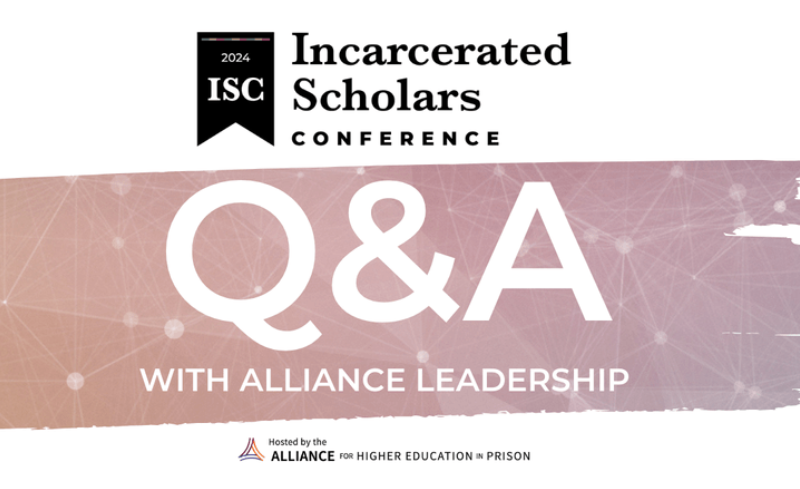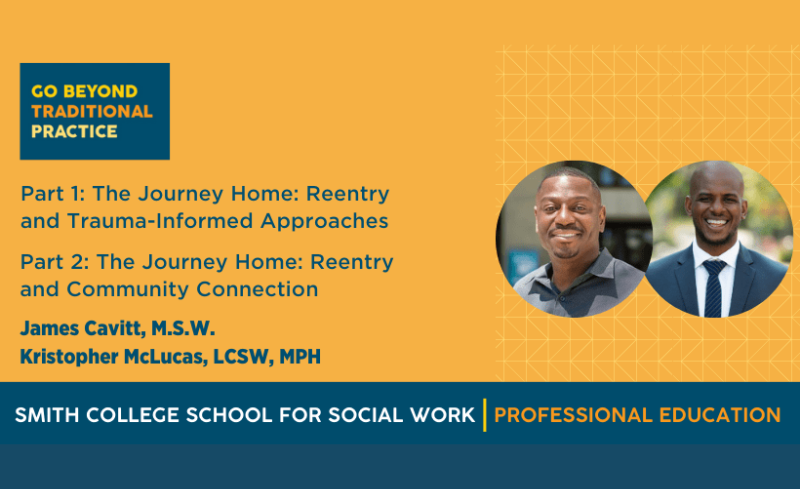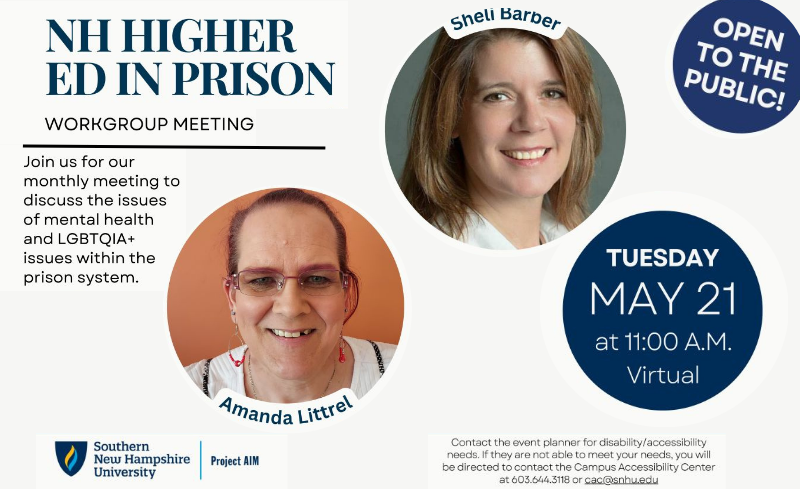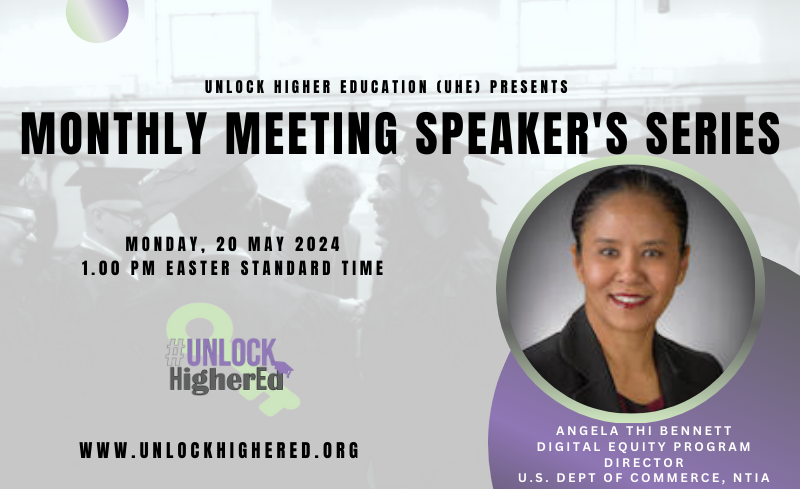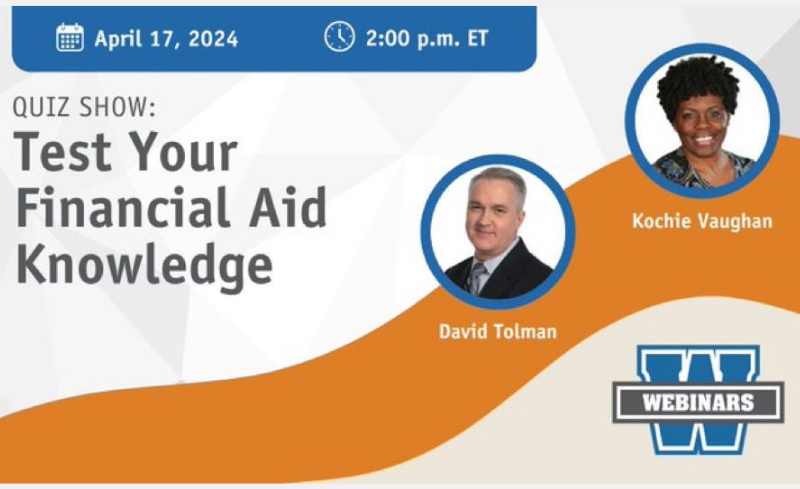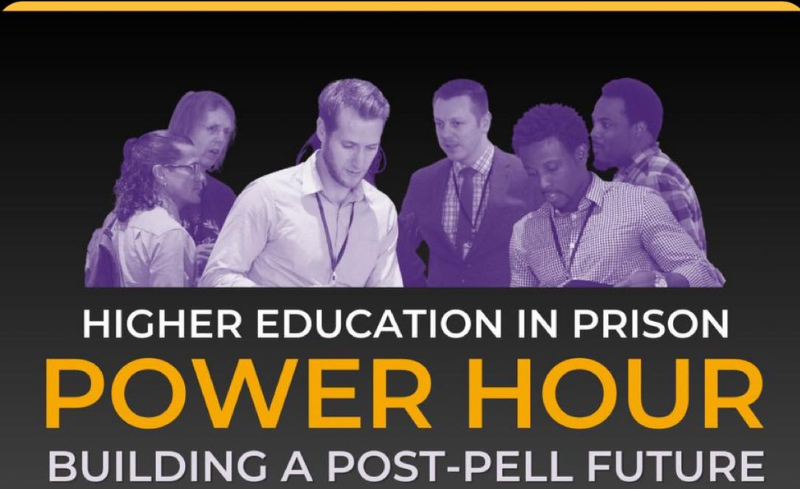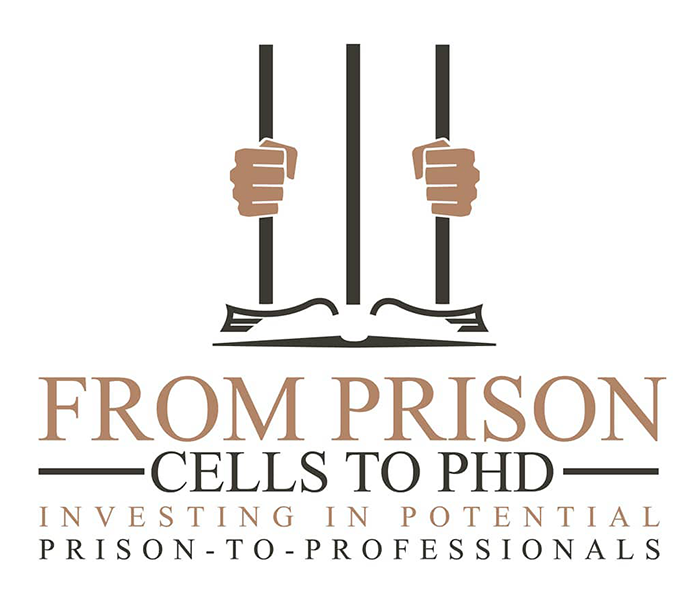More and more of our incarcerated community members are returning home; however, high rates of recidivism continue to impact our families and communities. Therefore as mental health professionals, we must be equipped to provide social justice-oriented care to our returning citizens that addresses the key factors that contribute to recidivism.
This two part series will educate and empower mental health professionals on how to successfully serve the formerly incarcerated community through a social justice lens. The series is facilitated by James Cavitt, M.S.W., and Kristopher McLucas, LCSW, MPH who have extensive experience working with the reentry population in the greater Los Angeles community. This training series will incorporate perspectives from professional experience, research, theory and lived experience to highlight the best practices to successfully work with the reentry community. It is designed for mental health professionals, program administrators and advocates that want to increase their capacity to better serve the reentry community.
SESSION ONE: REENTRY AND TRAUMA-INFORMED APPROACHES
This session will focus on the systemic factors that impact successful reentry and the trauma-informed strategies to facilitate healing. Participants will explore identity and how to create safe spaces for clients with intersecting identities. Participants will discuss the impact of trauma, complex trauma, systemic trauma from the criminal justice system and stigma. Participants will then explore how to create trauma-informed spaces, services and interventions when working with this population. Finally, participants will explore transference and countertransference issues as systemic barriers that affect those coming out of the criminal justice system.
Learning objectives
Identify the systemic factors that impact successful reentry
Identify trauma-informed strategies to facilitate healing
Describe the impact of social location on successful reentry
Explain trauma-informed assessment strategies for the reentry population
Describe how to address countertransference and transference in treatment
List interventions for assisting clients pending release or pre-release
Outline
Session 1: Reentry and Trauma-Informed Approaches
12:00 – 1:20 p.m. ET
Welcome Activity/Level Setting
Identity and Reentry
Discuss the importance of working with this population and having clinicians understand different aspects of their identity
Importance of creating safe spaces for clients with intersecting identities
The Impact of Trauma
Overview of the impact of their complex trauma history
Trauma history
Highlighting the multiple layers of trauma throughout the criminal justice system, i.e. prior to coming into the carceral system and during incarceration (e.g. surviving)
Stigma During and Post-Incarceration
Trauma-Informed Spaces
Creating trauma-informed physical spaces
Trauma-informed assessments
Trauma and physical health
Trauma and sexual health/intimate partner relationships
Trauma and family relationships
1:20 – 1:30 p.m. ET Break
1:30 – 3:15 p.m. ET
Addressing countertransference/transference
Transference
(Mis)trust with systems
Countertransference
Therapists’ biases
Systemic Discrimination on the Return Home
Systemic Discrimination within the Social Work Profession
Closing and Q & A
SESSION TWO: REENTRY AND COMMUNITY CONNECTION
This session will focus on how to help the reentry population successfully (re)build their relationships and reconnect with their family and community. Participants will discuss family unification and the unique barriers the reentry population experience during family reunification. They will then explore strategies to support family (re)connections, including intimate relationships with partners. Finally, participants will discuss the importance of community connections and how to help individuals reestablish existing relationships and identify new avenues for support.
Learning objectives
Describe how to help justice-impacted individuals successfully reconnect with their families and community post-release
List the unique barriers that can hinder successful community reentry and reintegration
Summarize strategies to enhance intimate partner relationships for the formerly-incarcerated community
Outline
Session 2: Reentry and Community Connection
12:00 – 1:20 p.m. ET
Welcome Activity/Level Setting
Family Unification
Coming Home
Discuss the unique barriers the reentry population experience during family reunification (How do people successfully reintegrate into their family system?)
The Importance of Family Connection
Healing Old Wombs
Discuss intervention on building family (re)connections
1:20 – 1:30 p.m. ET Break
1:30 – 3:15 p.m. ET
Relationships:
Navigating intimate relationships
Community Connection
Navigating old relationships with others and the community
Who is my community?
Forming a new support network
Closing Activity with Q & A
TARGET AUDIENCE:
Social workers and other social service providers.
COURSE DELIVERY METHOD, FORMAT AND INSTRUCTOR INTERACTION:
Live interactive webinar with discussion and small group activities. Instructor will use live on-camera chat and discussions for Q and A as well as break out rooms. Login information will be emailed immediately after registration to the email address entered during registration. Attendees are visible to one another in Zoom Meeting and are encouraged to be active participants with their camera and/or microphone in order take part in discussion.
SYSTEM REQUIREMENTS:
Attendees will need access to a computer with working camera and microphone. All courses are offered using Zoom conferencing software.
REGISTRATION FEES AND DEADLINES:
Early registration by March 15, 2024
Regular registration by May 22, 2024
CEs: Up to 6 CEs included with registration
SSW Alumni and Practicum discounts are available. Please contact sswpe@smith.edu for more information.
Attendees can register for both or just one session. This course has limited enrollment and may sell out. Registration will be on a first come first served basis
Register here. … Read More… »

